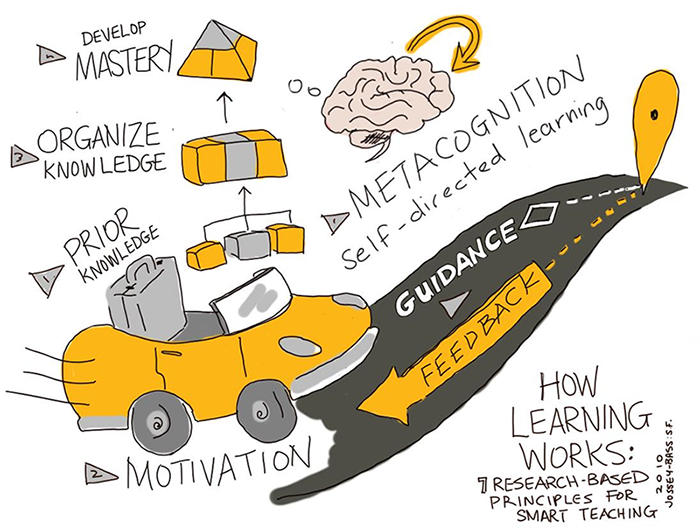Extended Activity 1b - How Learning Works
How Learning Works
The module is based primarily on the excellent book by Susan Ambrose and colleagues, How Learning Works: Seven Research-Based Principles for Smart Teaching (2010). Jossey-Bass: San Francisco.
The seven principles are:
- Students’ prior knowledge can help or hinder learning.
- recognize what students may already know and how that impacts on their learning
- How students organize knowledge influences how they learn and apply what they know.
- recognize how students already organize their learning / understanding of things
- Students’ motivation determines, directs, and sustains what they do to learn.
- recognize the importance of student motivation in the design of learning
- To achieve mastery, students must acquire component skills, practice integrating them, and know when to apply what they have learned.
- design instruction so that it promotes / encourages mastery
- Goal-directed practice coupled with targeted feedback enhances the quality of students’ learning.
- ensure focus
- ensure formative assessment
- Students’ current level of development interacts with the social, emotional, and intellectual climate of the course to impact learning.
- ensure to include what we know about our learner .. in the design of a course's tone .. to improve its impact
- To become self-directed learners, students must learn to monitor and adjust their approaches to learning.
- ensure that we promote learner autonomy

Comments
Post a Comment